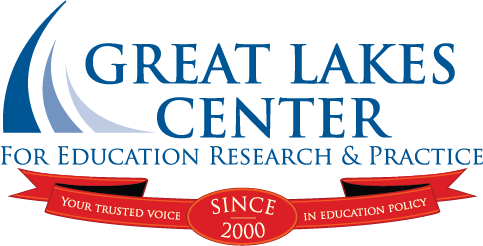
Think Twice Weekly Report
SEPTEMBER 23, 2023 - SEPTEMBER 29, 2023
The Think Twice Weekly Report compiles public education-related policy reports, research and articles of interest to policymakers, educators and stakeholders. This list is not exhaustive but is meant to highlight recent reports that may be used to support or undermine the work of our subscribers in supporting public schools. We encourage you to take a moment to scan these reports and determine if they may be used by policy makers to assist or erode your mission.
 Policy Reports
Policy Reports
Language and Learning
Source: New America
Date: 9/25/2023
A New Look at Dual Language Learner Data Gaps
The Center for American Progress' community conversations with a Colorado school district illustrate how offering no-cost school meals is critical for students' success and opportunities.
Mental Health
Source: Ed Trust
Date: 9/27/2023
How Mental Health Supports Impact Social, Emotional, and Academic Development (SEAD)
In this brief, Ed Trust lays out the challenges and barriers that exist for students experiencing mental health issues, and offers steps that can be taken at both the national, state, and local level - which educators, advocates, and policymakers at all levels of government can start assessing by using our web tool, Is Your State Prioritizing SEAD?, a 50-state scan of state policies that support the social, emotional, and academic needs of their students.
School Finance and Funding
Source: Center for American Progress
Date: 9/26/2023
Challenges and Opportunities of Providing Free School Meals for All
The Center for American Progress' community conversations with a Colorado school district illustrate how offering no-cost school meals is critical for students' success and opportunities.
School Reform and Restructuring
Source: Bellwether
Date: 9/28/2023
Shared Strategies: An Examination of Bellwether's School Cohort Program
Bellwether's School Cohort Program has helped school and system leaders across the country create high-quality, actionable school improvement plans to strengthen educational practices and give more students access to high-quality learning opportunities. Our analysis, Shared Strategies: An Examination of Bellwether's School Cohort Program, provides an overview of the Cohort Program and its work with schools supported by Great Minnesota Schools, a nonprofit based in Minneapolis.
 Reports Reviewed
Reports Reviewed
GLC seeks to ensure that policy briefs impacting education reform are based on sound, credible academic research. Below are reviews conducted with GLC support.
Review of Qualified Education Expense Tax Credit: Economic Analysis
Source: Georgia Department of Audits and Accounts
Reviewed by: David Knight, University of Washington
A recent report from the Georgia Department of Audits and Accounts examines the monetary costs and benefits of the state's Qualified Education Expense Tax Credit (QEEC), a voucher policy that provides a public subsidy for families to pay for private school tuition. A review of the report, however, contradicts its claim that the policy provides a net fiscal benefit to the state budget.
David Knight of the University of Washington reviewed Qualified Education Expense Tax Credit: Economic Analysis, and he found several methodological challenges that undermine the report's conclusions and its usefulness.
 What We're Reading
What We're Reading
Research and articles that we want to highlight for subscribers as potential resources:
Schools and Social Media: A Survey of NSPRA and CoSN Members
By: National School Public Relations Association
Social media allows school districts to engage families in local education in timely and innovative ways, but without dedicated verification and reporting processes for schools, districts struggle to prevent the harm to students and staff caused by malicious and fraudulent accounts.
The State of the Teacher Workforce
By: Learning Policy Institute
This map highlights key factors available from national data that reflect and influence the supply and demand for teachers in each state, including conditions of teachers' work and equitable access to qualified teachers. Many of these factors describe the appeal of the teaching profession in a given state and help to signal whether states are likely to have an adequate supply of qualified teachers to fill their classrooms. Others describe the extent to which students in different contexts have access to qualified teachers.
An Exploration of K-12 School Shooting Threats in the United States
By: Jillian Peterson, James Densley, David Riedman, Jamie Spaulding, Hannah Malicky, APA PsycNet
This exploratory study examines approximately 1,000 shooting threats made at K-12 schools gathered from publicly available news reports over a 4-year academic period, including prepandemic, pandemic, and postpandemic data. The content analysis finds violent threats increased dramatically in 2021-2022.
Constant Companion: A Week in the Life of a Young Person's Smartphone Use
By: Common Sense Media
Common Sense has focused their research efforts on hearing directly from young people about both the role and the impact of media and technology in their lives. This report fills a gap in the understanding of how teens actually use their smartphones, combining data from kids' phones themselves with feedback from the Common Sense Youth Advisory Council; the youth stated that the draw of their smartphone is both complicated and powerful.
What America can learn from Canada's new '$10 a Day' child care system
By: Jackie Mader, The Hechinger Report
The idea that parents should pay an average of $10 a day for child care and that public funds should underwrite child care programs is now a cornerstone of a new national child care system rolling out across Canada.
